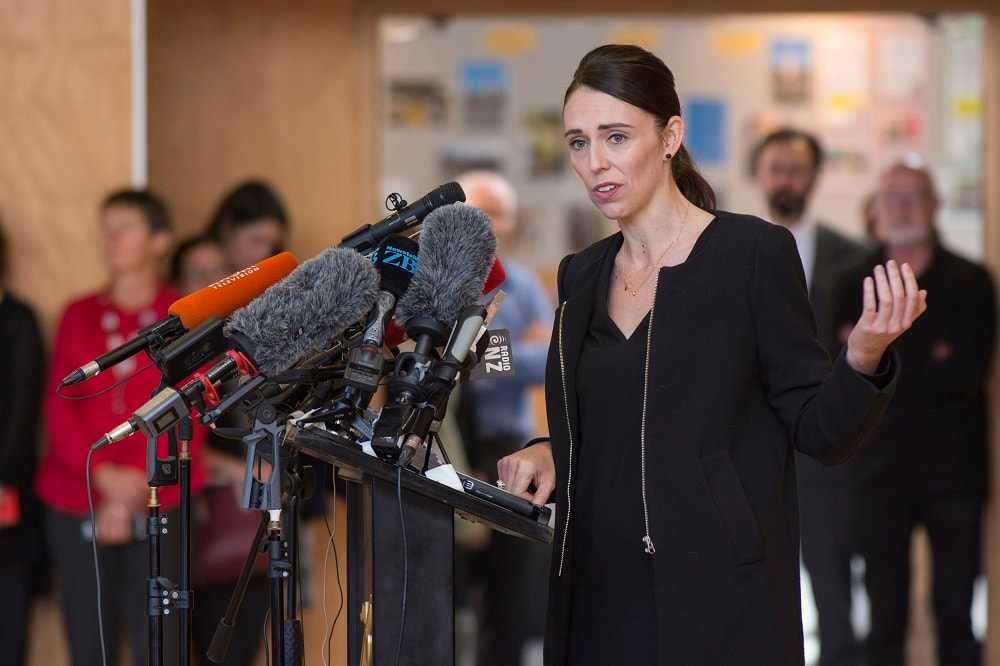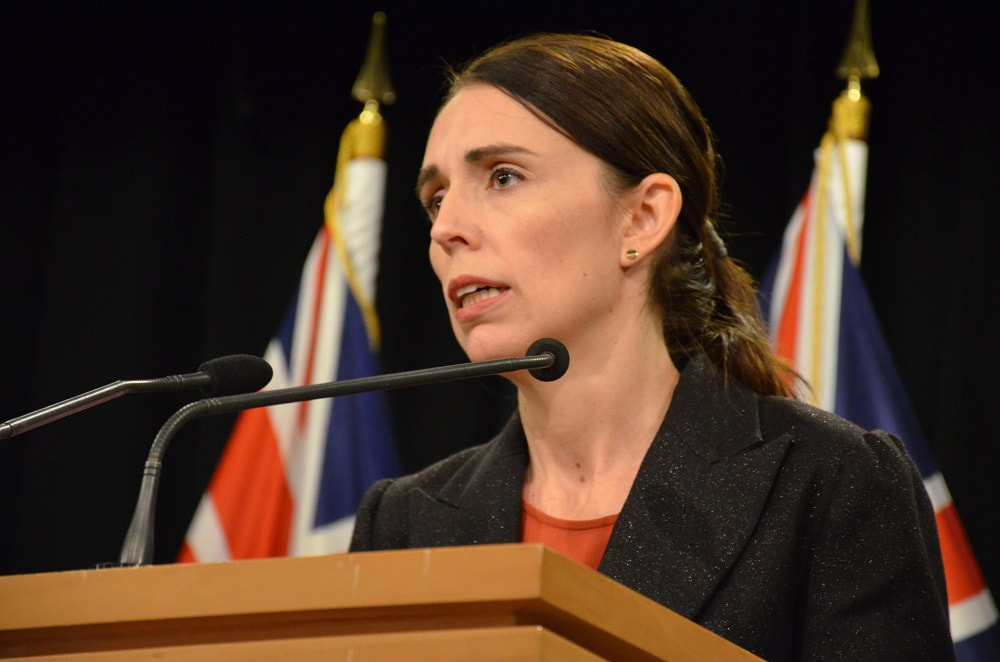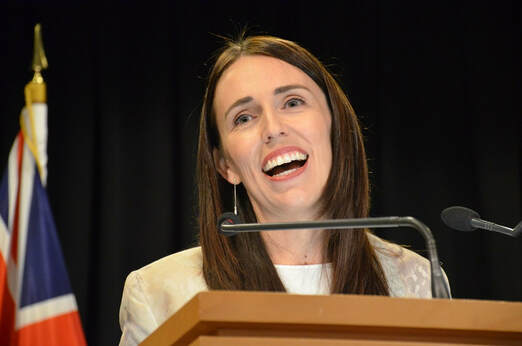 New Zealand Prime Minister Jacinda Ardern has jumped to her highest popularity levels ever after widespread praise for her handling of the Christchurch mosque shootings. In the first major poll taken since the March 15 terror attack, Ardern's rating as preferred prime minister has risen to 51 per cent of surveyed New Zealand voters. Her nearest rival, opposition and National Party leader Simon Bridges, was at 5 per cent in the 1 News Colmar Brunton poll - one of the country's two major media-run polls - released on Monday. In February, the same survey had Ardern at 44 per cent, compared to Bridges on 6 per cent. Meanwhile, her Labour Party was at 48 per cent, compared to 45 per cent two months ago, and National on 40 per cent. The 38-year-old prime minister received significant praise both across New Zealand's domestic political spectrum and internationally for her compassionate leadership style after the attack left 50 dead. Her government has since also banned a wide-range of semi-automatic weapons, with swiftly passed legislation almost unanimously supported by Kiwi lawmakers. The poll was conducted between April 6 and April 10, surveying 1009 voters. It has a margin of error of 3.1 per cent at a 95 per cent confidence level.  Prime Minister Scott Morrison will hold face-to-face talks with Kiwi counterpart Jacinda Ardern in Christchurch on Friday as both countries come together to grieve those killed in the city's mosque shootings. Ardern confirmed Australia will be represented at a National Remembrance Service at Hagley Park by Morrison, opposition leader Bill Shorten and Governor-General Sir Peter Cosgrove. The trio are among delegates from 59 countries who will be represented at the service which falls two weeks after the terror attack in which a gunman killed 50 people and injured another 50. None of the Australians will address a crowd that is estimated to number about 15,000. Ardern explained the service would have a Muslim focus in honour of those killed and wounded. However, she welcomed the chance to later speak in person with Morrison for the first time since the attacks, having been in regular telephone contact. "We don't tend to script our engagements but I'd imagine it will have a heavy focus on what's happened here in Christchurch," Ardern said. "New Zealand is incredibly grateful for the support of Australia - including the provision of 85 police staff and victim identification staff to help with what is our country's largest ever police investigation." Ardern had been forced to cancel a trans-Tasman trip scheduled for the immediate wake of the shootings. She waved off a reporter's suggestion that the size of the Australian delegation was due to a sense of responsibility because of the nationality of Australian-born alleged gunman Brenton Tarrant. "I think it's an acknowledgement of the closeness of our relationship," Ardern responded.  New Zealand Prime Minister Jacinda Ardern has been left defending a flagship promise to build 100,000 affordable homes in a decade after her administration only managed 47 houses during its first year in power. Her Labour Party campaigned on the ambitious home-building policy, dubbed Kiwibuild, in 2017 as a means to aid first-home buyers amid soaring house prices and falling home ownership rates. But the scheme has hit turbulence, with the country's housing minister last week revealing a 1000-home target for this July would be missed by nearly 700 houses - and that fewer than 50 homes had been built in the six months since the official launch. Ardern on Tuesday defended the 10-year-old pledge, emphasising the policy was just starting out. "I will not apologise for the fact we are building houses," she told reporters in Wellington. "I just wish we were doing it at a much faster pace." The $NZ2 billion ($A1.9 billion) program is made up of a combination of government-funded housing projects and private developments underwritten by the state and sold by ballot. Housing Minister Phil Twyford says officials have struggled in trying to convince private developers to move away from building large homes to small, cheaper dwellings. Contracts have, however, been signed with developers for about 10,000 properties down the line. But while getting the homes built is a struggle, the opposition says there's a demand problem too. Priced up to $NZ650,000 ($A619,480) in the most expensive centres - Auckland and Queenstown - and $NZ500,000 around the rest of the country, questions have been raised about how affordable the homes are. So far fewer than 300 people have pre-qualified to buy through the scheme and homes in some upcoming developments are yet to sell. “It’s incredibly embarrassing for the minister, who not only can’t reach his much plugged target of 1000 KiwiBuild homes, but the houses he has built are clearly not what first-home buyers want," National Party spokeswoman Judith Collins said. New Zealand's largest city, Auckland, is among the most unaffordable in the world relative to local incomes, according to the Demographia International Housing Affordability Survey, while some of the country's other major centres are considered severely unaffordable. The government last year banned buying of existing residential property by overseas investors in a bid to cool the property market. |
Archives
April 2019
Categories |